Image
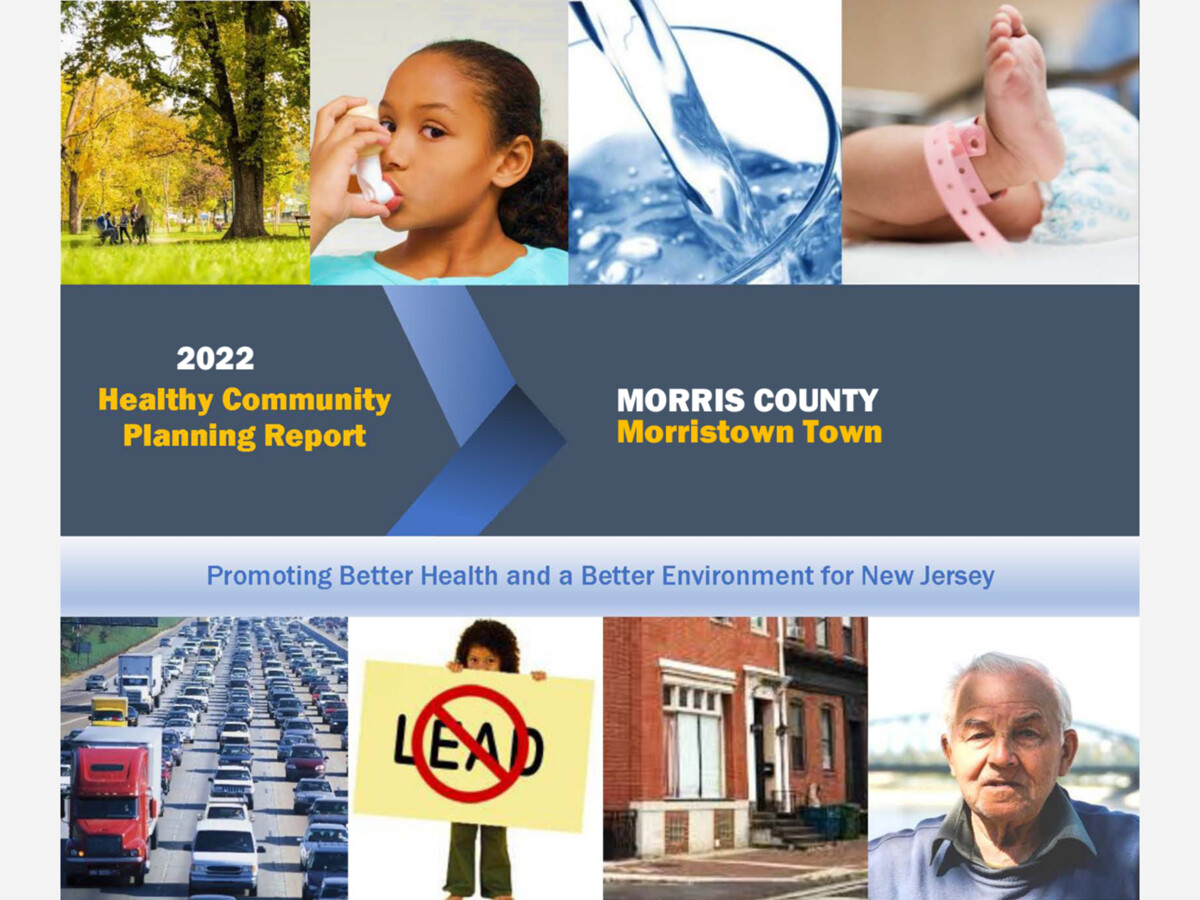
The New Jersey Department of Health (NJDOH) and the NJ Department of Environmental Protection (NJDEP)announced yesterday the launch of the Healthy Community Planning New Jersey (HCPNJ) website, which provides municipal-level reports to help local governments and the public better understand and address environmental threats to public health.
Each municipal-level report contains data on more than 30 environmental, health, and demographic indicators.
These reports are provided to help local communities better identify and address public health concerns, strategies for community health improvement, and community environmental policy decisions.
The following report details concerns in the town of Morristown.
Demographics:
Morristown has a population of just 19,000 inside a county with a population of just under 500,000 – comparably the state of NJ holds just under 8.9 million.
From 2016 to 2020, 20% of Morristown residents lived under two times the poverty level as opposed to 12.1% in Morris County, and 22.1% in the state.
Morristown is comprised of a 43.1% minority population
compared to 29.5% of Morris County and 45.3% across the state.
In Morristown, 10% of residents are uninsured, while 4.5% of Morris County residents are uninsured, and 7.6% of NJ residents have no insurance.
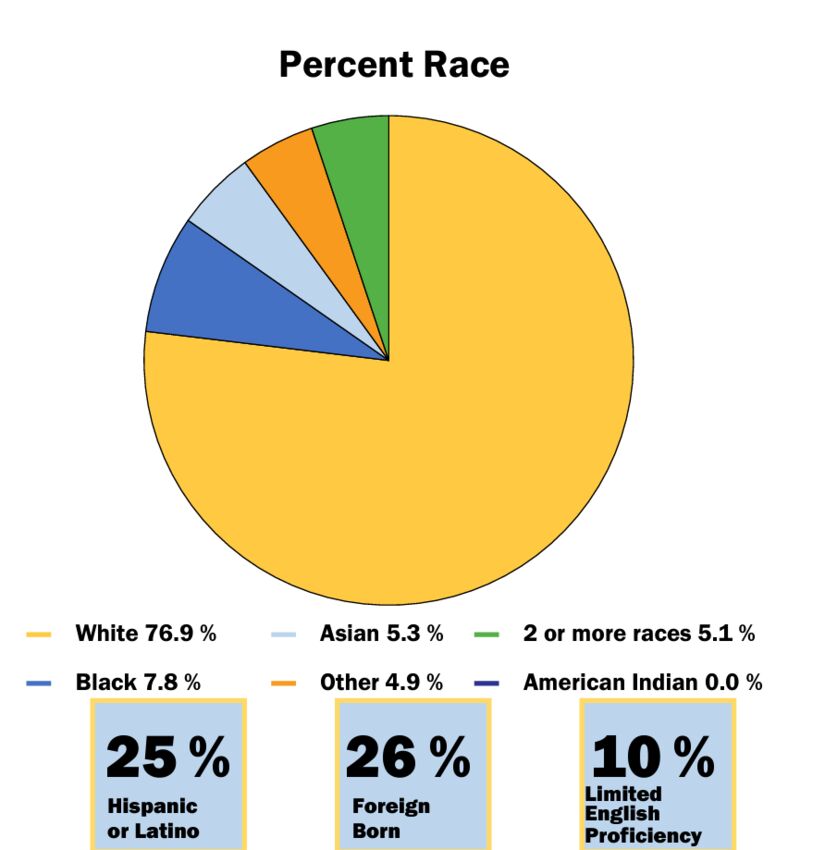
Environment:
Air Cancer Risk (cancer case per million people) within Morristown is estimated at 142 people per million, 115 in Morris County, and 155 in NJ – indicating Morris County has the best air quality, followed by the town of Morristown, then the state, respectively.
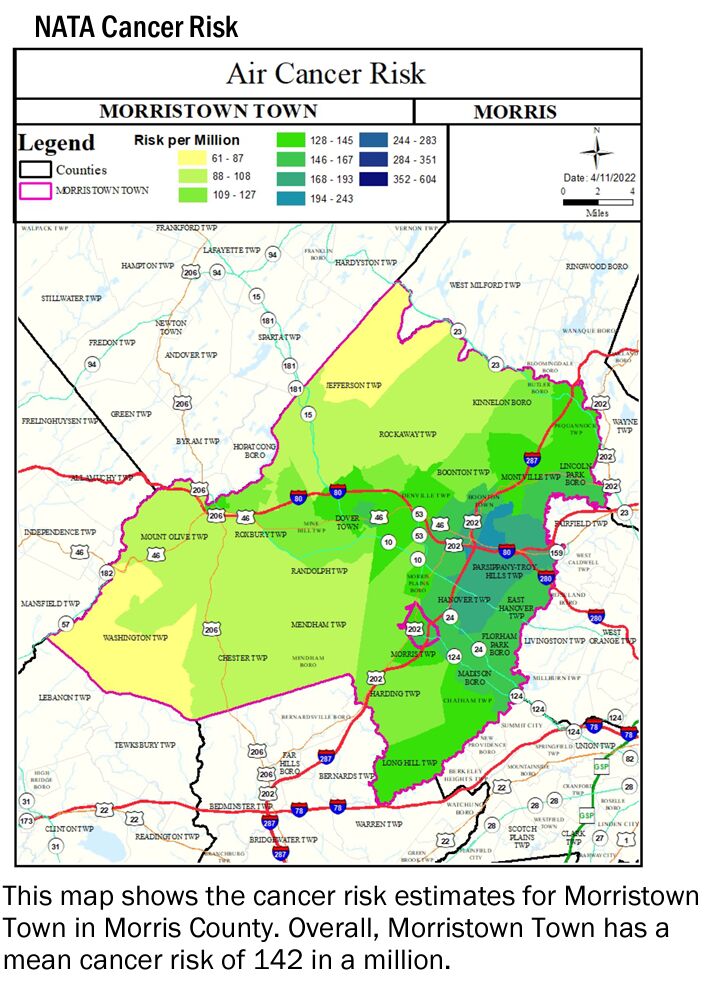
Air Quality Index takes into account the number of days when the air quality index is above 100 (harmful to human health). In Morristown, on a 3-year average, 4 days a year held an AQI over 100 that was harmful to human health. Comparably, there were 3.4 days per year on average with harmful air quality measures within Morris County, and 3.2 days on average across the state of NJ.
Community Drinking Water in Morristown was considerably safer than that of the county (by eight times fewer contaminants present) and even more so compared to the state (by 30 times).
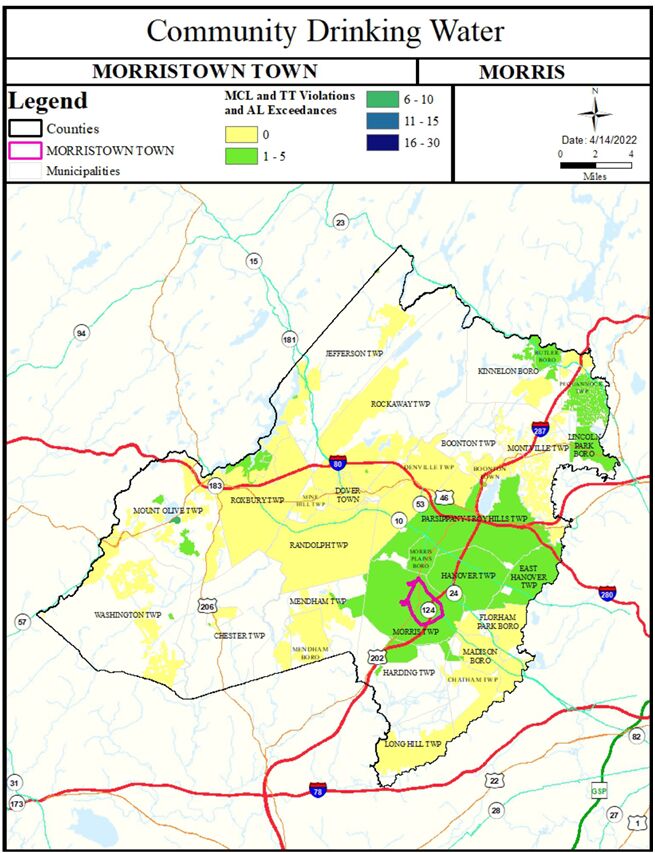
A major concern in Morristown since the construction of Headquarters Plaza has been flooding in Morristown’s second ward. 2.3% of urban land is used for area flooding in Morristown, but this only indicates the local government's efforts to squash flooding incidents, of which there has been little effort in Morristown. Comparably, 6.1% of county land is utilized as “Area Flooding” to reduce stormwater impacts, and 12% of the urban land across the state is utilized to reduce flood risk.
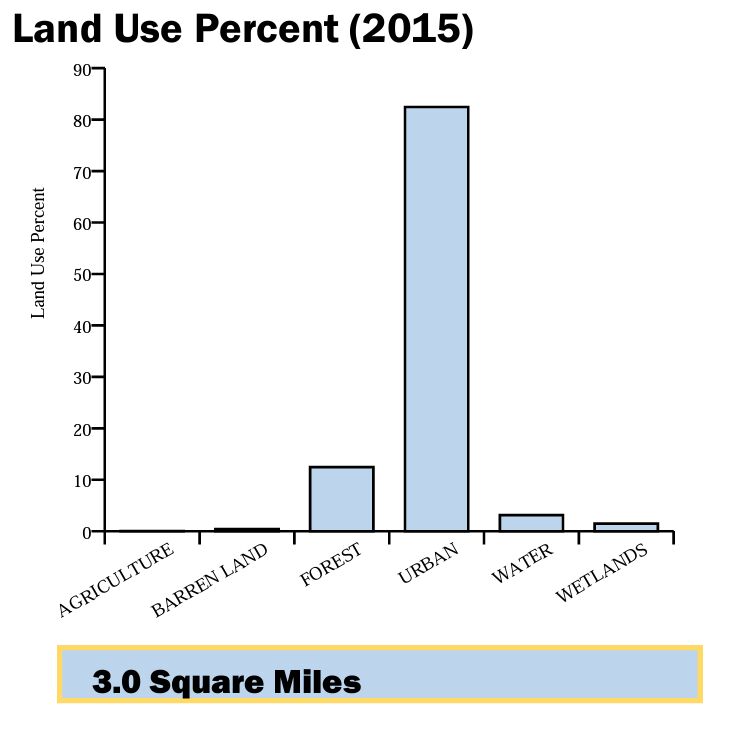
There are 9.16 Contaminated Sites per Sq Mile in Morristown, significantly higher than the County at 1.16 sites per square mile and the state with 3.85 contaminated sites per square mile. These contaminated sites are hazards to public health identified by the NJ Department of Environmental Protection.
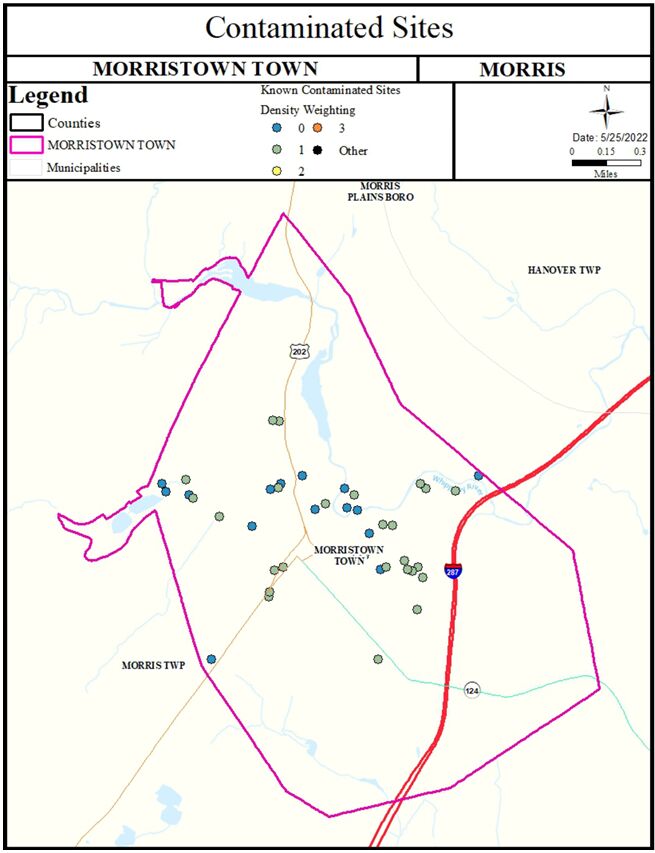
Built Environment:
35.3% of homes in the Morristown area were built pre-1950, indicating our town has a long history. In Morris County, 19.2% of homes were built before 1950, and 25.2% of homes across the state date from pre-1950.
Morristown also sees significantly heavier traffic
than both the state and county, with nearly twice the congestion of the average across the state of NJ.
Public Health:
6.7% of all births in Morristown are classified as low birth weight. Comparably, 6.1% of births county-wide are classified as low birth weight, and 7.9% of all births statewide.
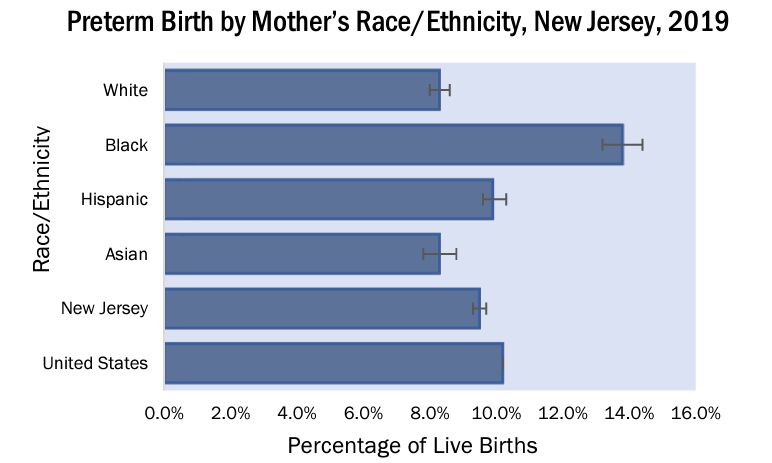
Morristown also sees a significantly higher rate of asthma cases per 10,000 residents with just under 96 asthma cases per 10,000 residents – comparably the county sees 24.7 cases per 10,000 and the state sees 55.7 cases of asthma per 10,000 residents.
Morristown also sees a higher rate of heart attacks
(28.8 residents per 10,000) than the county (12.5 per 10,000) and the state (16.3 per 10,000). However, NJ has a rate of 163.7 (per 10,000 residents) heart disease-related deaths per year while the county sees 140.3 heart disease-related deaths (per 10k), and Morristown averages just over 145 heart disease-related deaths per 10,000 residents per year.
Per 100,000 residents, on average 120.7 Morristown residents die from cancer yearly while 131.5 (per 100k) residents of Morris County die, and 144.6 (per 100k) residents of NJ die from cancer.
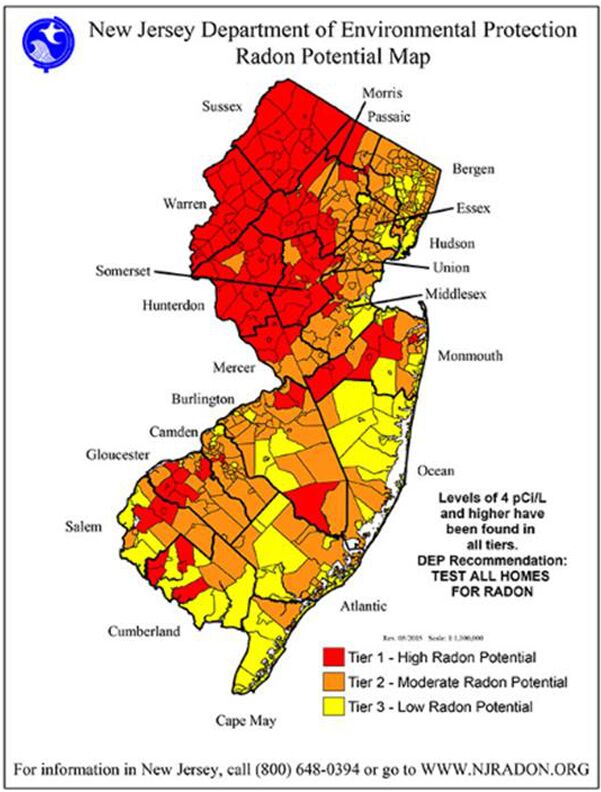
Morristown also has a lower rate of smoking adults
with 12.3% of the population compared to 12.4% in the county and 15.4% across the state.
Lastly, 27.8% of adults in Morristown are obese, with an obesity rate of 26.3% in Morris County and 28.2% across the state.
These statistics were part of what recognized Morris County as the healthiest county in NJ and the 16th healthiest county in America in a recent study released this week.
Follow Morristown Minute on Facebook, Instagram, and Twitter for more state and local updates.